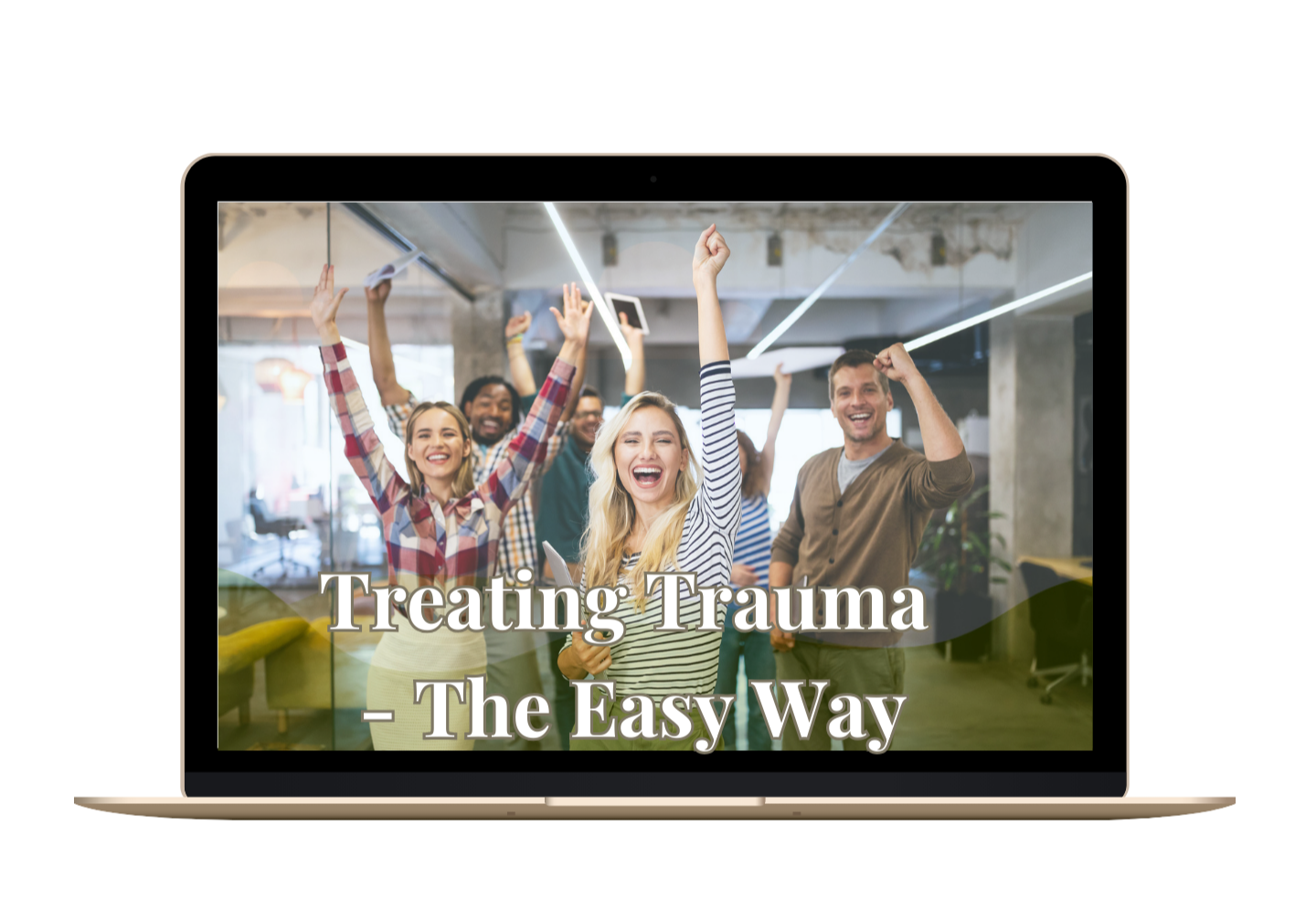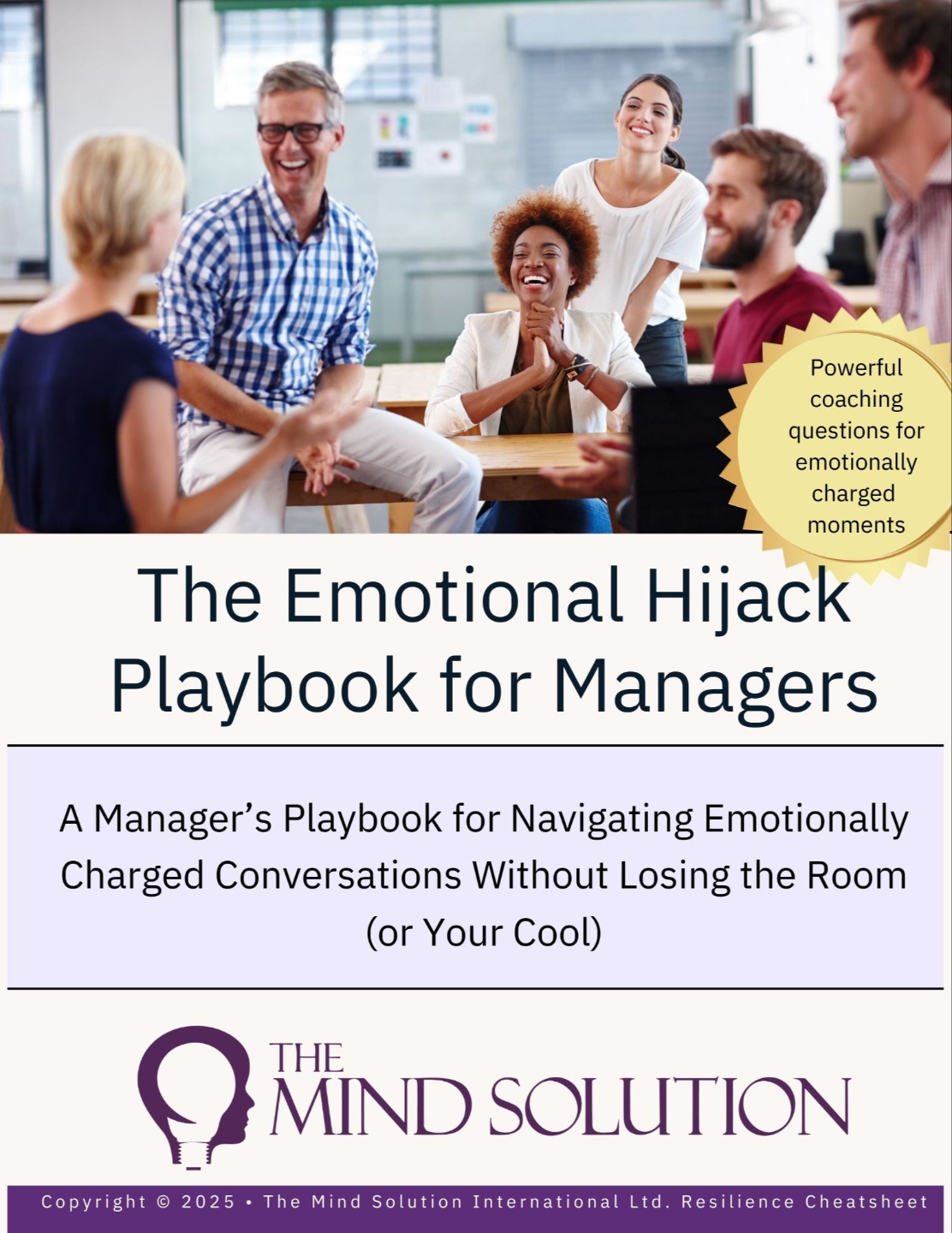Workplace Mental Health Support & Trauma Recovery: A New Approach for Organisations
Feb 13, 2025
Many organisations are doing fantastic work when it comes to workplace mental health support. We’ve come a long way from the days when Employee Assistance Programmes (EAPs) were the only option available.
But despite these advancements, something isn’t quite clicking.
📉 Employees are still burning out.
📞 EAP services remain underutilised.
🗣 People are struggling in silence instead of speaking to their managers.
And what I’m observing more and more is that forward-thinking organisations are beginning to explore workplace trauma as the missing piece in their well-being strategies.
The Hidden Link Between Trauma and Workplace Wellbeing
If there’s one thing I absolutely know to be true, after holding thousands and thousands of trauma-focused sessions over the past decade, it’s this:
👉 Trauma is at the heart of so many mental and physical health problems.
Anxiety? A by-product of trauma.
Burnout? A nervous system stuck in survival mode.
Depression? Unresolved emotional pain weighing the system down.
And when individuals process their trauma, the shift in their overall well-being is incredible.
🔥 Their mental health improves.
🔥 Their physical health transforms.
🔥 Their engagement, energy, and productivity skyrocket.
Yet most organisations are still relying on traditional workplace mental health support strategies that don’t address trauma at all.
That’s where the opportunity lies for forward-thinking organisations:
👉 To introduce workplace trauma support that goes beyond Employee Assistance Programmes.
Why Employee Assistance Programmes (EAPs) Don’t Work for Trauma
Most organisations still rely on talking therapy through EAPs as their primary workplace mental health support solution.
But here’s what I absolutely know to be true, backed by science:
Talking therapy is NOT an effective method to treat trauma.
Why?
Because the mind doesn’t know the difference between reality and imagination.
When someone talks about a traumatic experience, their nervous system reactivates it as if it’s happening again.
Their body doesn’t know the event is over—it stays locked in a state of emergency, trapped in the sympathetic nervous system’s fight-or-flight response.
🚨 The more we talk about trauma, the more we reinforce it.
🚨 The more we relive painful memories, the more the nervous system remains stuck in survival mode.
And when trauma remains unresolved, it doesn’t just affect mental health—it impacts:
🔹 Chronic stress & anxiety – The body is stuck in a heightened state of alert.
🔹 Exhaustion & burnout – The nervous system never fully recovers.
🔹 Physical health issues – Autoimmune conditions, gut issues, chronic pain.
🔹 Cognitive performance – Trauma impairs executive function, reducing focus, decision-making, and emotional regulation.
The workplace cannot afford to ignore trauma anymore.
Trauma Affects More Employees Than You Think
For a long time, trauma was seen as something that only affected war veterans. But we now know that trauma can affect anyone.
Common workplace trauma triggers include:
✔ Bereavement – The loss of a loved one or colleague.
✔ Personal loss – Divorce, family breakdown, financial instability.
✔ Workplace incidents – Bullying, conflict, toxic work environments, restructures.
✔ Accidents & sudden events – Car crashes, medical diagnoses, unexpected life changes.
✔ Micro-traumas – High-pressure environments, feeling unsafe at work, a distressing meeting.
✔ Frontline professionals – Nurses, doctors, paramedics, and firefighters exposed to trauma daily.
Most people don’t even realise they are stuck in a trauma-based response.
They just know they feel exhausted, anxious, stressed, and overwhelmed—but they don’t connect it to past experiences.
And that’s exactly why we need a new approach to workplace mental health support.
Introducing Treating Trauma the Easy Way
Through my work as a therapist, I have developed a groundbreaking way to treat trauma that:
✔ Doesn’t involve talking about trauma.
✔ Doesn’t involve reliving painful memories.
✔ Doesn’t involve dragging up the past.
And—unlike traditional therapy—it works in a group setting where:
✔ Employees don’t have to speak.
✔ They don’t have to turn their cameras on.
✔ They don’t have to share anything personal.
And the results? Incredible.
Does It Sound Too Good to Be True? Here’s the Proof.
In 2024, we ran studies to measure the impact of this approach in workplace settings.
🚀 95% of participants experienced a significant reduction in trauma.
🔹 One participant—a 9/11 survivor—started the session at 10/10 distress and finished at 0/10—in under an hour.
🔹 Several employees who had suffered workplace bullying and had been diagnosed with complex PTSD reported their trauma more than halved in a single session.
💡 Imagine your employees having access to this every month.
That’s exactly what they can have with Treating Trauma the Easy Way.
👉 Not only does it treat workplace trauma—it also treats anxiety, depression, burnout, and even physical health conditions.
Run a Pilot Session & See the Results for Yourself
If this sounds like it’s too good to be true, I completely understand.
That’s why we’re offering organisations the chance to experience this approach firsthand—before committing.
We’ll run a private in-house pilot session where:
✔ Employees don’t need to talk or share their experiences.
✔ They simply rate their distress level from 0-10 before and after the session.
✔ The results speak for themselves.
🔥 Spots for pilot sessions are limited.
📩 If you’d like to explore this for your organisation, get in touch today.
Final Thoughts
We are at a turning point in workplace mental health support.
It’s time to go beyond the surface-level strategies and start addressing trauma in a way that actually works.
This isn’t just about reducing stress.
This is about helping people heal.
The Emotional Hijack Playbook For Managers
A Manager’s Free Resource for Navigating Emotionally Charged Conversations Without Losing the Room (or Your Cool).
Perfect to use in your next one-to-one.







